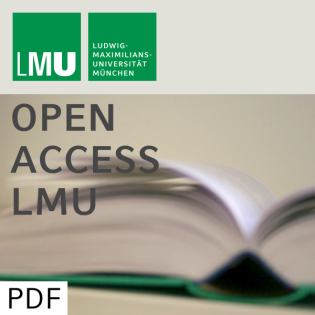
RMAPW-Verfahren und selbstkonsistente Bandstruktur von Gold
Podcast
Podcaster
Beschreibung
vor 40 Jahren
The "Relativistic Modified Augmented Plane Wave" (RMAPW) method of
Bross and Hofmann (1969) was realized numerically in a slightly
modified form and tested with the example of copper potential of
Burdick (1963). With regard to future applications in the area of
surface-bandstructures and surface-states this realization was done
in a generalization of the RMAPW-method for complex k-vectors
("complex RMAPW") of Wachutka (1978). Starting from the
"Overlapping Charge Density" (OCD) potential of gold in "Muffin
Tin" (MT) form from Christensen and Seraphin (1971) in this work a
selfconsistent gold potential in "Warped Muffin Tin" (WMT) form was
computed. As a modell for the electron-electron interaction the
effective local single-particle-potential in the context of the
"Local Density Approximation" (LDA) with relativistic adjustments
for the exchange-term of MacDonald and Vosko (1979) was used. On
the basis of the energy spectrum, the density of states, and the
anisotropy of the fermi-surface the approximations of WMT and
DFF/LDA are discussed. The most essential result is, that with the
selfconsistent potential there is in the energy-scale a movement of
the occupied d-bands slightly upwards and a broadening of the
d-bandwidth, in contrast to some experiments. Neddermeyer (1981)
suggested a drastic upshift of the 7. band - for that proposal
there is no evidence in this work. Because in this calculation
exchange- and correlation-potentials are free from adjustable
parameters, the author guesses, that in the difference between
theory and experiment we have reached the limit of the local
approximation (LDA). This publication is 99% identical with the
PhD-thesis of the author at LMU Munich in March 1984. Minor add-ons
are given in brackets [...]. A new appendix from 2012 adds some
informations from the assets of the author and discusses some
interesting newer PhD-theses about Copper and Gold, done at the
Institut of Theoretical Solid State Physics (Prof. H. Bross) at LMU
Munich.
Bross and Hofmann (1969) was realized numerically in a slightly
modified form and tested with the example of copper potential of
Burdick (1963). With regard to future applications in the area of
surface-bandstructures and surface-states this realization was done
in a generalization of the RMAPW-method for complex k-vectors
("complex RMAPW") of Wachutka (1978). Starting from the
"Overlapping Charge Density" (OCD) potential of gold in "Muffin
Tin" (MT) form from Christensen and Seraphin (1971) in this work a
selfconsistent gold potential in "Warped Muffin Tin" (WMT) form was
computed. As a modell for the electron-electron interaction the
effective local single-particle-potential in the context of the
"Local Density Approximation" (LDA) with relativistic adjustments
for the exchange-term of MacDonald and Vosko (1979) was used. On
the basis of the energy spectrum, the density of states, and the
anisotropy of the fermi-surface the approximations of WMT and
DFF/LDA are discussed. The most essential result is, that with the
selfconsistent potential there is in the energy-scale a movement of
the occupied d-bands slightly upwards and a broadening of the
d-bandwidth, in contrast to some experiments. Neddermeyer (1981)
suggested a drastic upshift of the 7. band - for that proposal
there is no evidence in this work. Because in this calculation
exchange- and correlation-potentials are free from adjustable
parameters, the author guesses, that in the difference between
theory and experiment we have reached the limit of the local
approximation (LDA). This publication is 99% identical with the
PhD-thesis of the author at LMU Munich in March 1984. Minor add-ons
are given in brackets [...]. A new appendix from 2012 adds some
informations from the assets of the author and discusses some
interesting newer PhD-theses about Copper and Gold, done at the
Institut of Theoretical Solid State Physics (Prof. H. Bross) at LMU
Munich.
Weitere Episoden

vor 11 Jahren

vor 11 Jahren
In Podcasts werben







Kommentare (0)